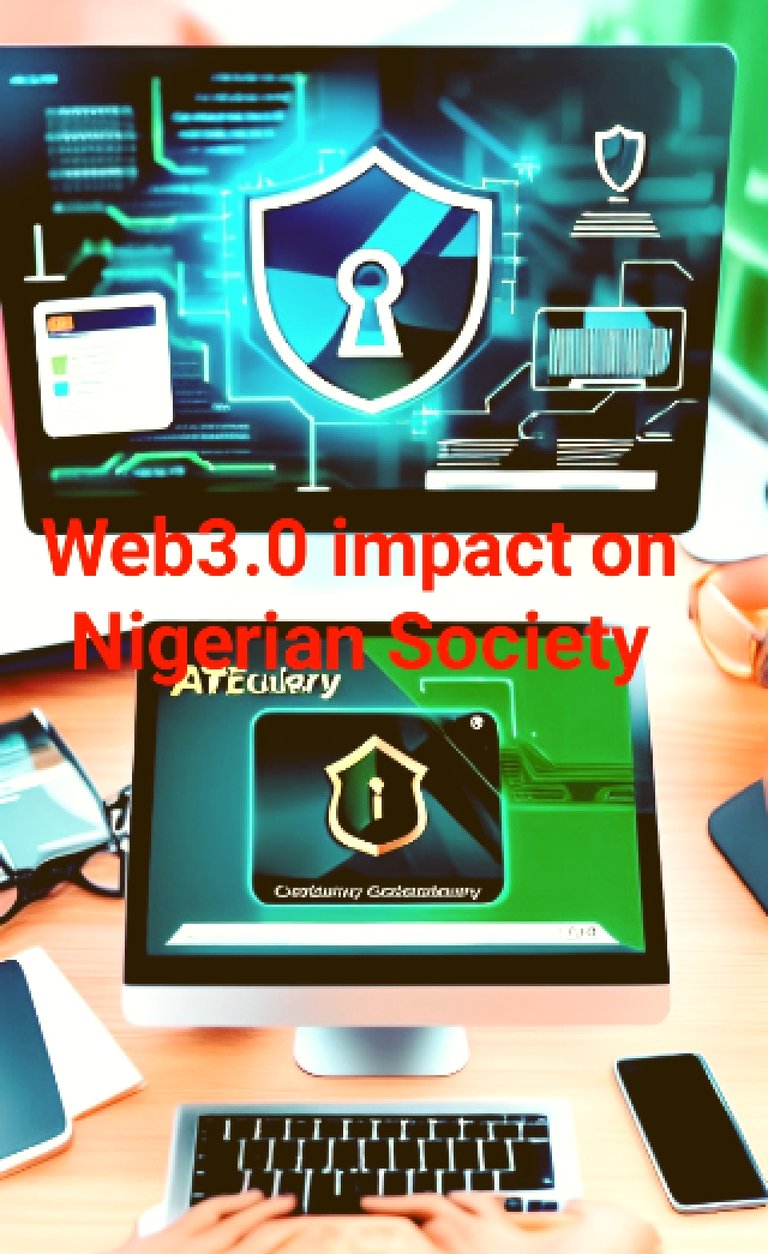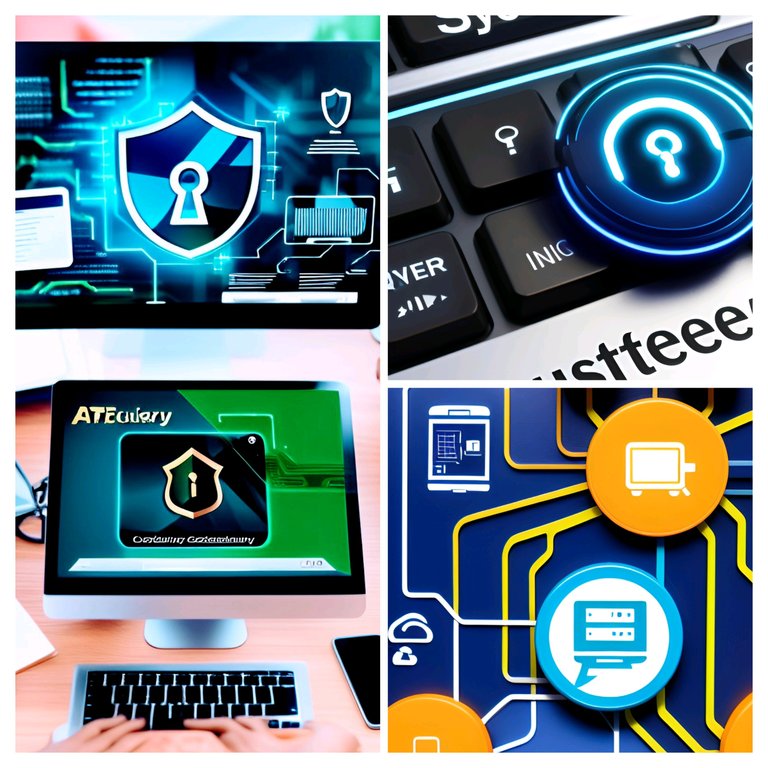Web3.0 impact on Nigerian Society

Web 3.0 refers to the next generation of the internet, which is envisioned to be more decentralized, user-centric, and focused on privacy and security. Web3.0 is a term used to describe the next generation of the internet that will be built on blockchain technology1. It is expected to be more decentralized, secure and private than Web 2.01. However, it is important to note that Web3 front-ends will still have many of the same vulnerabilities as Web 2.0 front-ends, despite the Web3 backend1.
There are many examples of Web3 applications. Here are some of them include
- Decentralized Finance (DeFi)
- Non-Fungible Tokens (NFTs)
- Social Media
- Gaming
- Supply Chain Management
- Identity Management
- Cryptocurrency
- Healthcare and medical industry
It is said that web3.0 is built on blockchain technology and aims to revolutionize various aspects of society, including finance, governance, data privacy, and social interactions. The potential impact of web3.0 on Nigerian society can be significant and far-reaching. The most impact of the web3.0 technology will be largely felt in various sectors of Nigerian society. Here are some of the benefits when the government formulate policies or adopt the use of Web3.0
Financial Inclusion: Web3.0 has the potential to improve financial inclusion in Nigeria by providing access to decentralized financial services. Blockchain-based platforms can enable peer-to-peer transactions, cross-border remittances, and microlending without the need for traditional intermediaries. This can empower underserved communities in Nigeria, such as the unbanked and underbanked populations, to access financial services and participate in the global economy.
Trust and Transparency: Web3.0 can enhance trust and transparency in Nigeria, where corruption and fraud are significant challenges. Blockchain-based systems can provide immutable records of transactions, contracts, and identities, reducing the potential for corruption and fraud. Smart contracts, which are self-executing and tamper-proof, can also facilitate transparent and efficient processes in areas such as supply chain management, land registration, and voting systems, leading to increased accountability and governance.
Data Privacy and Security: Web3.0 can address concerns around data privacy and security in Nigeria. Traditional internet platforms often collect and control user data, which can be misused or hacked. In contrast, web3.0 solutions can empower users to have control over their data through decentralized identity and data ownership models. This can protect the privacy and security of Nigerian users, preventing data breaches and unauthorized access to personal information.
Entrepreneurship and Innovation: Web3.0 can foster entrepreneurship and innovation in Nigeria. Blockchain-based platforms can enable decentralized applications (dApps) and token economies, allowing individuals and businesses to create and monetize digital assets. This can create new business models, funding mechanisms, and opportunities for Nigerian entrepreneurs and developers to build innovative solutions and participate in the global digital economy.
Digital Rights and Freedom of Speech: Web3.0 can promote digital rights and freedom of speech in Nigeria, where censorship and limitations on online expression are concerns. Decentralized social media platforms based on blockchain can enable users to have control over their content, protect against censorship, and promote free speech. This can empower Nigerian citizens to express their opinions, share information, and participate in public discourse without fear of censorship or reprisal.
Education and Skills Development: Web3.0 can enhance education and skills development in Nigeria. Decentralized learning platforms and digital credentials based on blockchain can enable lifelong learning, skills verification, and credentialing. This can help address the skills gap in Nigeria and empower individuals to acquire new skills, improve employability, and participate in the digital economy.
Nigeria’s cybersecurity problem reaches both public organizations and private corporations. Corruption, tardiness, and bureaucracy can exacerbate the problem in public organizations.
Overall, web3.0 has the potential to transform various aspects of Nigerian society, including finance, governance, data privacy, entrepreneurship, digital rights, and education. However, it also presents challenges in terms of regulation, scalability, and adoption. Appropriate policies, regulations, and infrastructure will be critical to harnessing the potential of web3.0 for the benefit of Nigerian society and ensuring inclusive and sustainable development.

Congratulations @topchuqs! You have completed the following achievement on the Hive blockchain And have been rewarded with New badge(s)
Your next target is to reach 3750 upvotes.
You can view your badges on your board and compare yourself to others in the Ranking
If you no longer want to receive notifications, reply to this comment with the word
STOPCheck out our last posts: